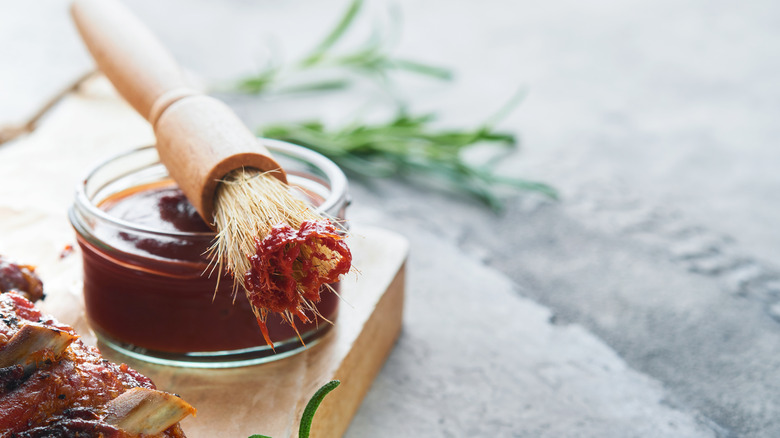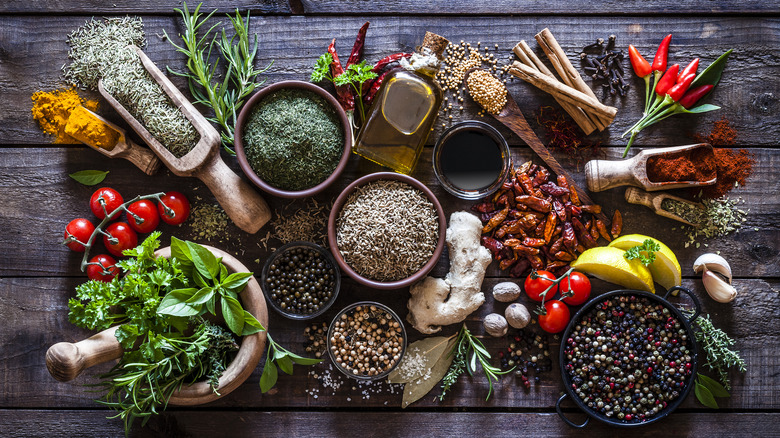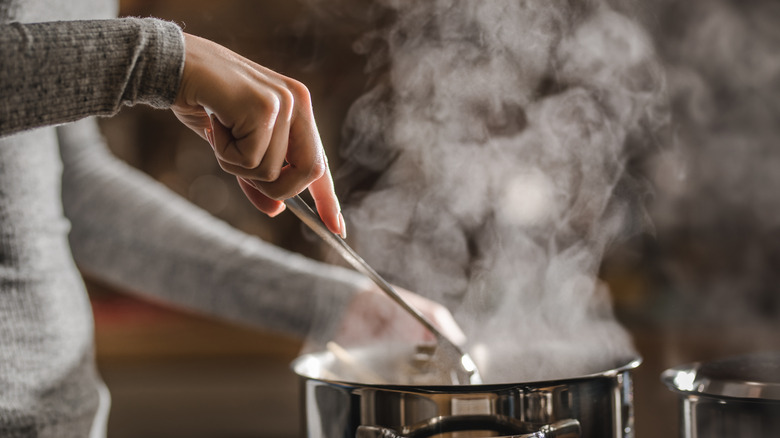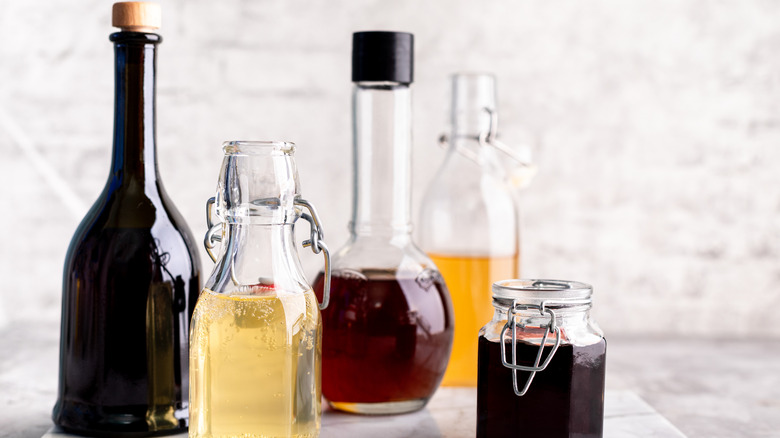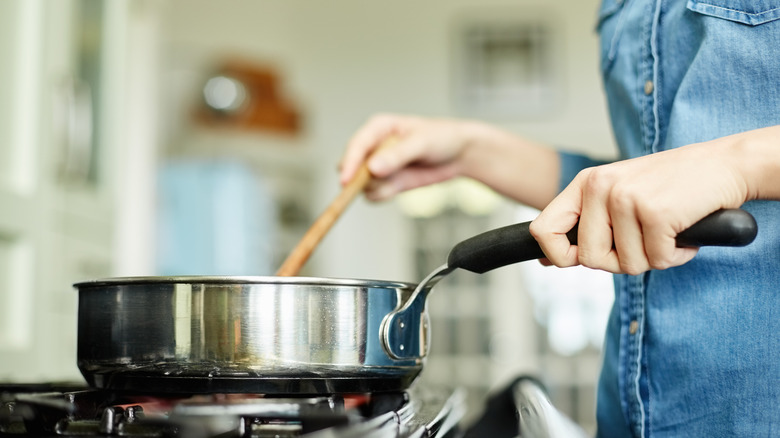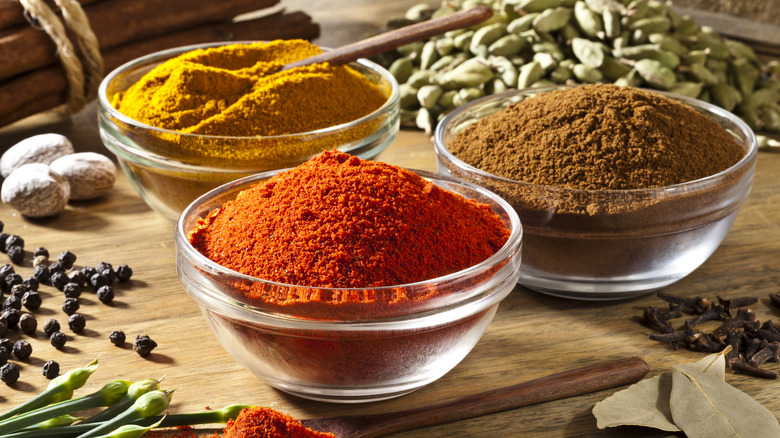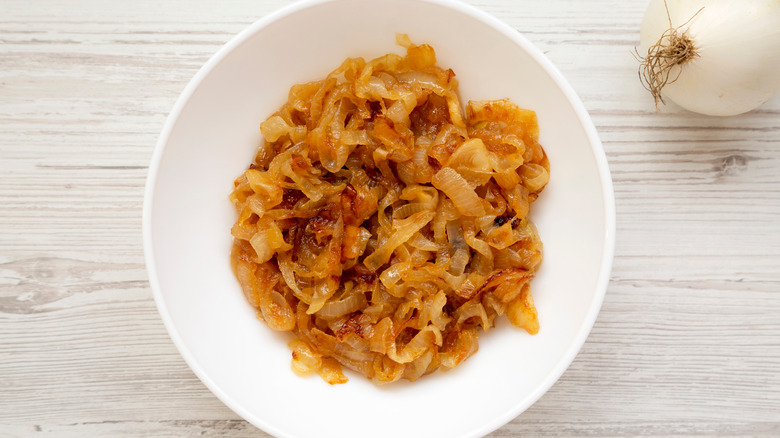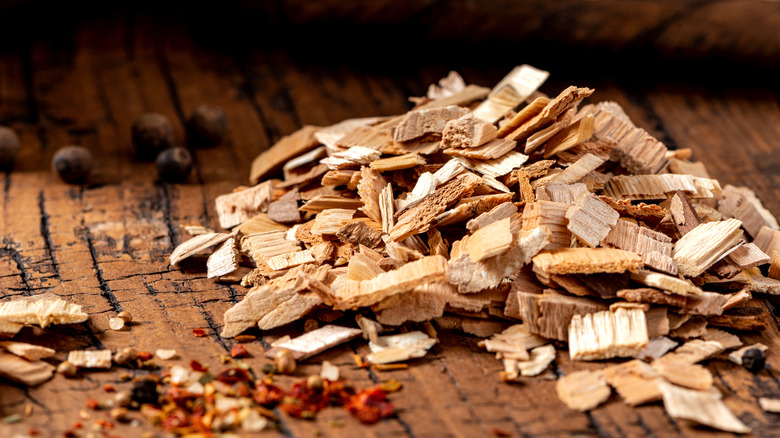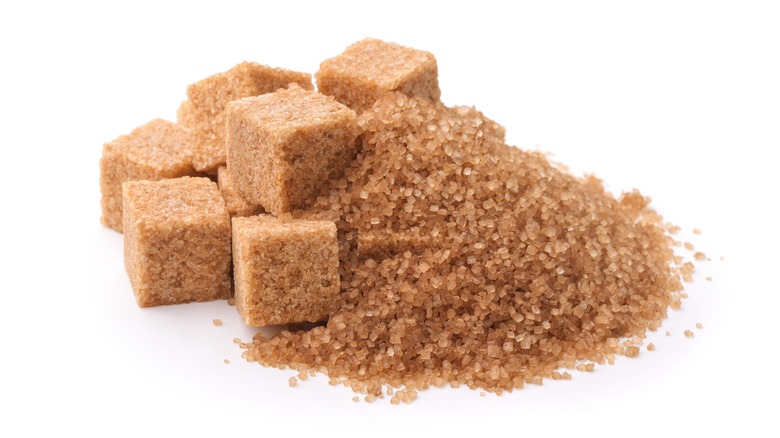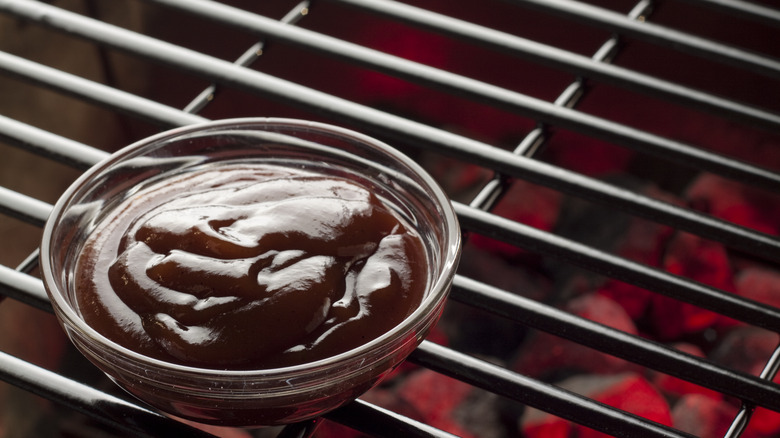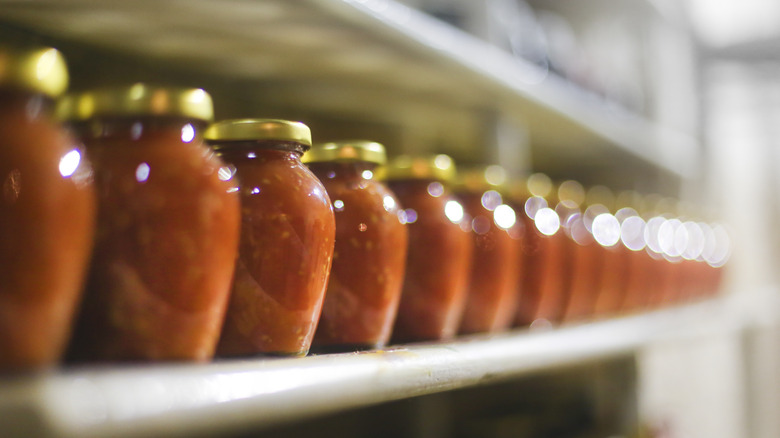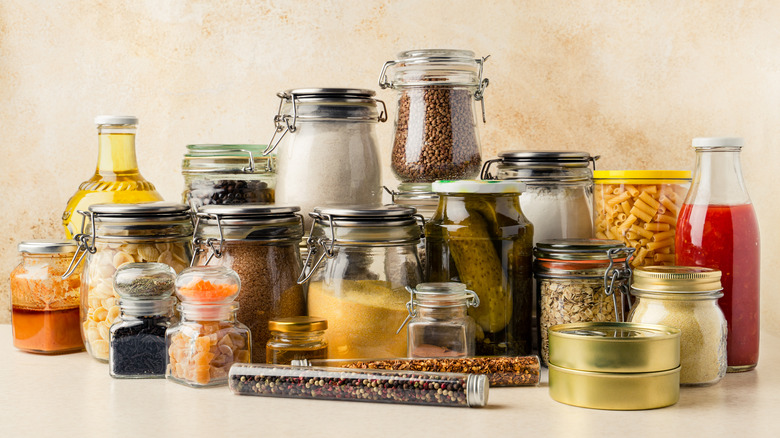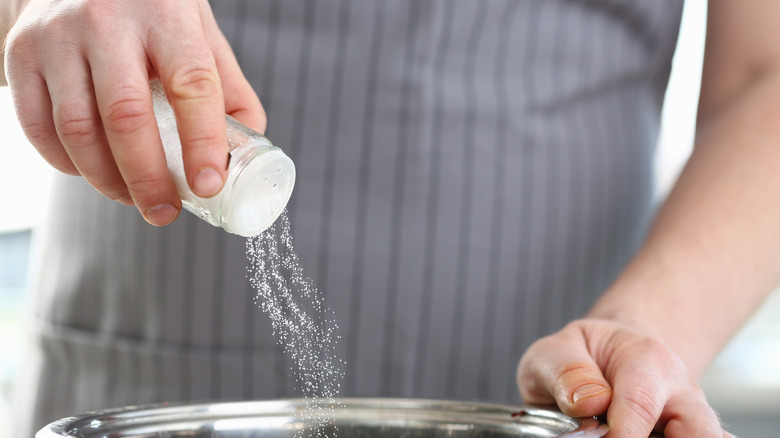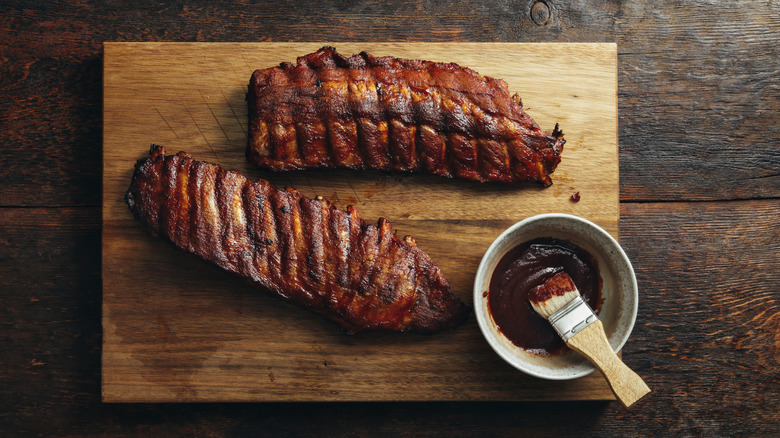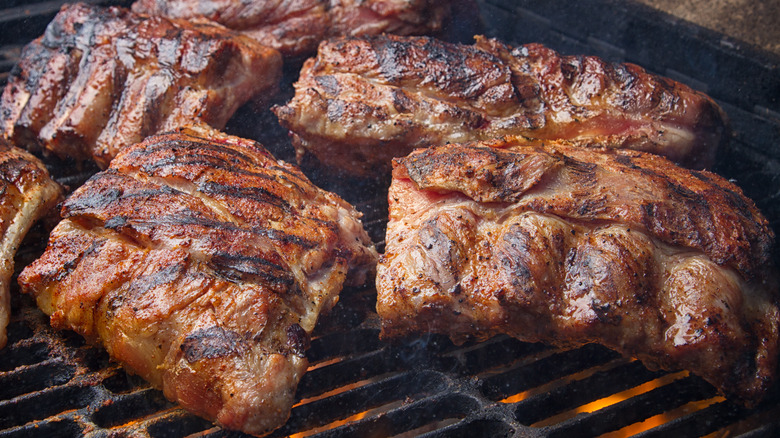15 Ways You're Ruining Homemade Barbecue Sauce
Barbecue sauce, in its essence, is a balancing act of flavors. Too much of one thing or too little of another, and the entire symphony falls out of tune. And while every family has its own secret recipe, a heirloom of sorts passed down generations, there are common mistakes that many of us unknowingly make. Balancing flavors like sweetness, tanginess, saltiness and spice is essential for a sauce that complements the meat rather than competes with it. Not simmering the sauce long enough prevents flavors from developing, while oversimmering can dull them.
Timing is everything for homemade barbecue. And for the best pairing, customize your sauce for the particular meat, adjusting elements to highlight beef, pork, chicken or seafood at their best. From improper balancing of flavors to poor handling practices, ruining a batch of sauce is easier than you might think. But fear not, redemption is possible! By identifying the potential pitfalls, you can craft a sauce that makes your taste buds rejoice with flavor in every bite.
Using low-quality ingredients
One of the biggest mistakes home cooks make when making barbecue sauce is using low-quality or subpar ingredients. For the base of your barbecue sauce, use tomato paste or crushed tomatoes as the primary ingredient rather than ketchup. Ketchup contains a lot of sugar and not a lot of actual tomato. Tomato paste and crushed tomatoes provide a fresher, tangier tomato flavor that won't be lost among a sea of high fructose corn syrup.
Instead of just regular granulated sugar, experiment with other sweeteners like honey, molasses, maple syrup or brown sugar. These provide more complex, richer sweetness than regular sugar. Molasses and brown sugar, in particular, have robust, toasted notes that pair beautifully with barbecue flavours.
When it comes to spices and seasonings, choose high-quality, fresh options. Pre-ground black pepper, chili powder, paprika and dried herbs will not have the same flavour or potency as whole or freshly ground versions. Take the time to grind your own spices to make a world of difference in your barbecue sauce.
Overcooking the sauce
Another common mistake when making barbecue sauce at home is overcooking the sauce, which can lead to a dull, unappealing end product. Barbecue sauce needs to be cooked to allow the flavours to develop and meld together, but cooking it for too long can cause it to become bitter, dull and overly thick.
A common misconception that leads to overcooking is the idea that "longer is better" when simmering your sauce. Yes, you do want to give your sauce time to allow the flavors to meld and mature, but there comes a point when longer cooking does more harm than good. Ingredients in your barbecue sauce, like sugars and tomatoes, can burn when exposed to high heat for extended periods, leading to an unpleasantly bitter taste. Another factor that contributes to overcooking is the heat level. High heat might be great for searing a steak, but when it comes to barbecue sauce, low and slow is the way to go. A gentle simmer gives the ingredients enough time to release their flavors without the risk of burning.
Not choosing the right type of vinegar
Vinegar plays an important role in barbecue sauce, providing a tangy kick and balancing out the sweetness. However, the type of vinegar used can make a big difference in the finished flavour of your sauce. Not all vinegars are created equal, so choose your vinegar wisely based on the flavor profile you want in your barbecue sauce.
Distilled white vinegar is flavorless and harsh, and should be avoided in barbecue sauce. For a classic barbecue sauce flavor, apple cider vinegar is your best choice. Apple cider vinegar has a mild tang and subtle apple-like sweetness that pairs perfectly with molasses and brown sugar. If you want a robust, tangy flavor, white wine vinegar or Champagne vinegar are a great option. Their sharp acidity helps cut through rich meats like brisket or pulled pork. Balsamic vinegar has a sweet, syrupy flavor that can be overpowering in large amounts but adds an attractive glaze-like sheen and rich raisin-like flavor when used sparingly. You can also blend balsamic vinegar with cider or wine vinegar for more complex flavor.
Neglecting to balance the flavours
A common mistake home cooks make when crafting homemade barbecue sauce is neglecting to properly balance the flavors. Barbecue sauce should have a blend of sweet and savory flavors, plenty of tang to balance the sweetness, and enough spice to keep things interesting. If any of these elements is out of balance, your barbecue sauce just won't taste right.
Sweetness is the backbone of any good BBQ sauce. Sugars in various forms — from molasses and brown sugar to honey and maple syrup — give the sauce its delectable sticky quality and offer a lovely counterpoint to the heat of spices. However, an excess of sweet ingredients can cause a cloying, candy-like flavor that will drown out the other components, leading to a less-than-satisfactory BBQ experience. Imagine biting into a rib expecting a savory explosion, only to be met with an overwhelming sugar rush. Contrarily, acidity is another pillar of BBQ sauce's flavor profile. Vinegar, lemon juice, or even tamarind provides this crucial tartness, cutting through the sweetness and richness of the sauce to provide balance. Neglecting the acidic element can result in a one-dimensional sauce, while overuse can create a puckering, sour taste that overwhelms the palate and masks the other flavors.
Using too much or too little seasoning
Properly seasoning your barbecue sauce is essential for maximum flavor, but using too much or too little seasoning is one of the quickest ways to ruin your sauce. Under-seasoning your sauce will yield a bland end product lacking in flavor, but over-seasoning can lead to a harsh, bitter sauce that overwhelms the other ingredients.
When it comes to using too much seasoning, it's crucial to remember that it's easier to add than to subtract. Start with a moderate amount, taste, and then gradually add more if needed. The flavor of seasonings like cayenne pepper, chili powder, or garlic powder can be quite intense and can easily overshadow the nuanced flavors that make barbecue sauce such an integral part of the BBQ experience. Meanwhile, an underseasoned BBQ sauce can be just as problematic. The essence of a good BBQ sauce is a robust flavor profile that compliments the smoky, charred meat it's paired with.
Ignoring the importance of caramelization
One crucial step that is often overlooked when making barbecue sauce is caramelizing the onions, garlic and tomato paste or other aromatics. Caramelization occurs when ingredients are cooked for a long period over moderate heat, resulting in a natural browning and heightened flavor. Onions, in particular, become very sweet when caramelized due to the breakdown of sugars. Caramelization affects the texture of your barbecue sauce. It thickens the sauce, giving it that beautiful, glossy finish that clings to your ribs, chicken, or brisket.
The depth of flavor achieved through patient caramelization cannot be replicated or hurried. It provides a uniquely complex sweetness and savory intensity that forms the heart and soul of memorable barbecue sauces. Despite the extra effort required, caramelizing aromatics and vegetables before simmering your sauce will reward you mightily with a homemade barbecue sauce like none other. But be careful not to confuse caramelization with burning. If your heat is too high, or if you leave your sauce unattended for too long, the sugars can burn, giving your sauce a bitter, unpleasant taste.
Overusing smoke flavouring
Smoke flavoring, whether from wood chips, liquid smoke or smoked spices like paprika, provides an essential element of authentic barbecue flavor. However, using too much smoke flavoring is a common mistake that leads to an acrid, bitter sauce overpowered by an artificial smoky taste. For the best results, use smoke flavoring judiciously and balance it well with the other flavors in your sauce.
Liquid smoke, the most common smoke flavoring used in barbecue sauces, is a potent elixir. Distilled from actual smoke, it captures the essence of the barbecue in a convenient liquid form, adding a smoky depth to your sauce with just a few drops. If using wood chips, choose hickory, applewood or mesquite chips which provide a robust smoky quality without bitterness. Smokiness and barbecue sauces go hand in hand, but smoke flavoring requires finesse. An overly heavy amount of wood chips, liquid smoke or smoked spices results in a harsh, acrid flavor that obscures the other ingredients in your sauce.
Using the wrong type of sweetener
Sweetness is essential for balancing the robust, tangy flavors in barbecue sauce. However, the specific type of sweetener used can make a huge difference in the end result. Not all sweeteners are created equal, and some work better than others for homemade barbecue sauce. Granulated white sugar may seem an obvious choice, but it is one-dimensional and does not stand up well to long cooking.
For barbecue sauce, liquid sweeteners are a superior option. They add moisture and complex flavor that plain sugar lacks. You should consider adding honey to your barbecue sauce as it offers a lighter, floral sweetness that pairs well with milder barbecue dishes. It also thickens your sauce and gives it a lovely glossy sheen. But honey burns easily, so it's best added towards the end of cooking or used in sauces that are served on the side. Brown sugar, with its rich molasses undertones, is a classic choice that adds depth and complexity to your sauce. It also caramelizes beautifully, giving your sauce that shiny, sticky finish that's so characteristic of barbecue.
Not simmering the sauce long enough
Simmering is a key step when making homemade barbecue sauce that allows the flavors to blend, thicken and intensify. It is best not to rush the simmering process or cut it short. Simmering for only a few minutes results in a thin, raw sauce with a one-dimensional flavor. The flavors in the sauce deepen and meld as heat is applied, so extended cooking yields far superior flavor versus barely heating the ingredients through. The natural tomato pectin and sugar will break down and thicken the sauce, while seasonings become richer and more complex.
Be careful not to simmer for too long or the sauce can become too thick. The ideal consistency is thick enough to lightly coat a spoon but still able to be poured. When your sauce reaches this ideal thickness and a flavor you love, remove it from the heat. As the flavors intensify, you might find that you need to add more sweetener, vinegar, or spices to maintain the balance.
Neglecting the thickness and texture
Homemade barbecue sauce should have a thick, pourable texture that lightly coats your favorite meats or vegetables. An overly thin, watery sauce lacks flavor and won't stick well to food. On the other hand, a sauce that is too thick becomes gloppy and choked with sediments, clinging in uneven globs rather than coating evenly. Several factors determine the thickness or consistency of your homemade barbecue sauce. Using tomato paste, crushed tomatoes or tomato sauce in place of ketchup provides more body and less moisture and help to thicken your runny BBQ sauce.
The amount of sugar and vinegar in your recipe also impacts thickness. More sugar enhances tomato pectin and draws moisture from the sauce, resulting in thickening. Additional vinegar thins the sauce by adding moisture. For your desired consistency, balance vinegar and sugar amounts. Teriyaki sauce is also a simple addition that guarantees a rich and sticky barbecue sauce. Chopped vegetables, herbs, and spices add texture to your sauce. Leaving the sauce chunky provides more texture than pureeing smooth.
Exposing the sauce to excessive heat or light
Homemade barbecue sauce is best enjoyed when it retains maximum freshness, flavor, and texture. When your barbecue sauce is exposed to high temperatures for extended periods, it accelerates the spoilage process. Spoiled barbecue sauce can have a vinegar or fermented odor. If your barbecue sauce has such as smell, then it is time to throw it out.
Store your barbecue sauce in a cool, dark place, like a pantry or cupboard. If you've made a large batch and plan on storing it for more than a week, consider refrigerating it to further prolong its shelf life. Also, opt for opaque or dark-colored bottles or containers to shield your sauce from light. When it comes to using the sauce for cooking or grilling, avoid leaving it out in the heat or direct sunlight for too long. If you're serving the sauce as a dip, consider using an insulated container or putting out smaller portions at a time, keeping the rest in a cooler or indoors.
Using contaminated utensils or storage containers
Homemade barbecue sauce contains ingredients like tomatoes, sugar, and vinegar that are prone to spoilage if handled improperly. A common mistake is using the same utensils for raw food and then dipping them into your sauce. This can lead to cross-contamination, where harmful bacteria from the raw food can get into your sauce. Especially if your sauce is going to be stored for later use, this can result in foodborne illness. Always wash your utensils and containers thoroughly with warm, soapy water before you start cooking. Make sure you clean all the nooks and corners where food particles can hide.
If you're reusing storage containers, consider sterilizing them. You can do this by boiling them in water for about 10 minutes or washing them in a dishwasher with a sterilized setting. And don't forget the lids or caps — these need to be clean and sterile too. When you're grilling, always use separate utensils for raw and cooked food. If you need to baste the meat while it's cooking, set aside a portion of the sauce for this purpose, and do not mix it with the remaining sauce.
Overloading your barbecue sauce with salt
Using too much salt is one of the quickest ways to ruin your homemade barbecue sauce. An overload of salt masks the flavors of spices and aromatics, resulting in a harsh, one-dimensional sauce lacking complexity. For the best flavor, use a light hand and build up the amount of salt gradually.
Use care when adding salty ingredients like soy sauce, fish sauce, or Worcestershire sauce. These ingredients enhance savoriness but also contribute a lot of sodium. Measure and add them in small increments, stirring and simmering for a few minutes between additions before tasting again. You may need little or no additional salt when using these ingredients. To rescue an oversalted sauce, add a potato or two to the simmering sauce. This method may require significant dilution with broth, water or tomato juice as well to balance the salt. Preventing oversalting in the first place is ideal, but this technique can help minimize damage if too much salt does sneak in.
Adding the sauce to meat at the wrong time
Barbecue sauce typically contains sugar, which can burn at high temperatures or if left on the heat for too long. If you apply the sauce too early, especially while grilling over direct heat, you could end up with a charred, bitter crust rather than the flavorful, caramelized glaze you're aiming for. On the other hand, adding the sauce too late might not give it enough time to meld with the meat and create that distinctive barbecue flavor. The sauce might sit on the surface, not quite adhering, leaving your meat lacking in that saucy goodness.
So, what's the sweet spot? The general rule of thumb is to wait until the last 10-15 minutes of cooking to apply your barbecue sauce. This gives the sauce enough time to heat up, stick to the meat, and create a nice glaze, without the sugars having time to burn. For example, the best moment to add the sauce to grilled chicken is at the end of the basting process when the chicken is nearly done. However, remember to keep a close eye on it, as different grills and different heat levels can vary the perfect saucing time.
Neglecting to adjust the sauce for different meats
The natural flavors of beef, pork, chicken, or shrimp require different balances of sweet and tangy or levels of spice for maximum enhancement. A one-size-fits-all approach to your barbecue sauce is a missed opportunity to customize flavors for each meat. For homemade barbecue that brings out the best in everything from brisket to shrimp, adjust your sauce to suit the particular meat.
For chicken, which has a lighter, more delicate flavor, choose a sauce that's a balance of sweet and tangy. Honey-based sauces work well, complementing the natural mildness of chicken without overwhelming it. When it comes to pork, particularly ribs, you can afford to be a bit bolder. A sweet and smoky sauce often works well. You might lean towards sauces with a molasses base, with a good dose of smokiness from chipotle or smoked paprika. If you're grilling lamb, meat with a distinctive, almost gamey flavor, a sauce with a good bit of acidity works well to balance the richness.
